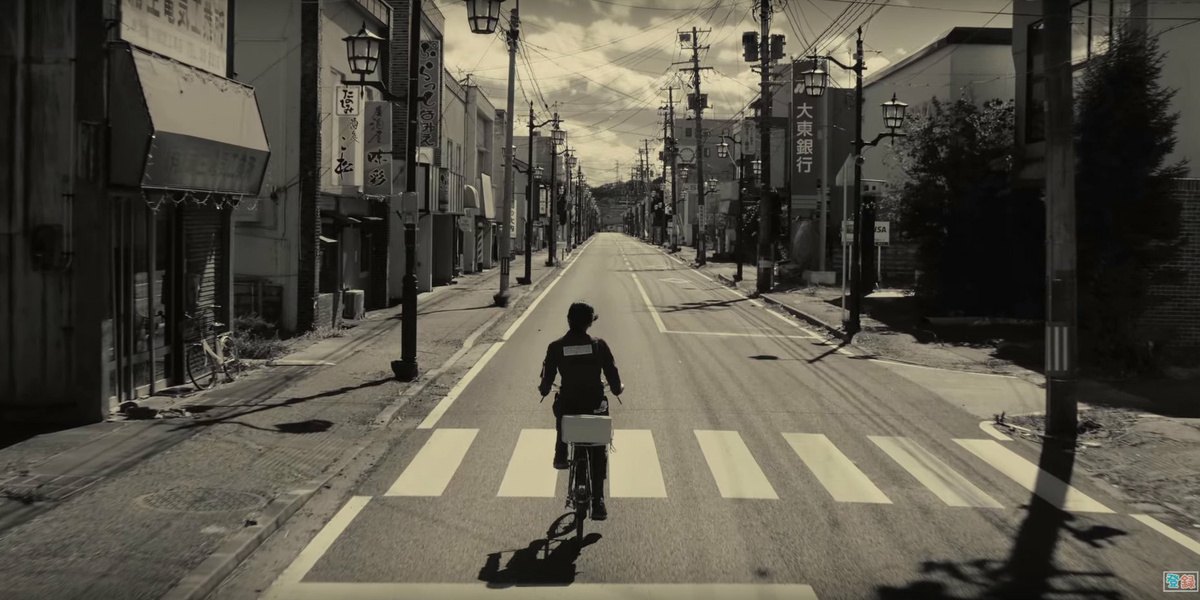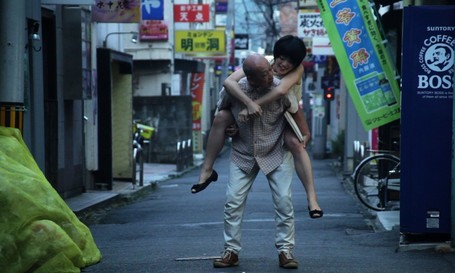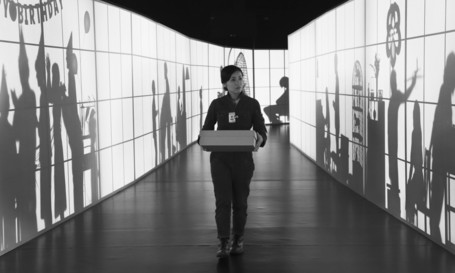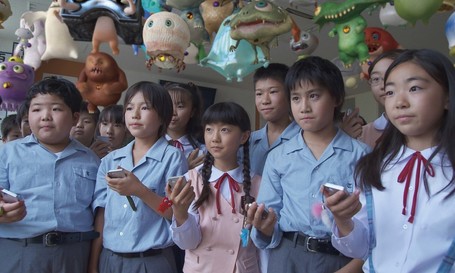Archiwum - 10. Festiwal Filmowy Pięć Smaków
Fukushima, 5 lat później
Fukushima, pięć lat później
Pięć lat temu Japonia przeżyła katastrofę, która odmieniła kraj, a na świecie stała się złowieszczym symbolem atomowego zagrożenia. Na tegorocznych Pięciu Smakach upamiętniamy to wydarzenie, prezentując trzy wyjątkowe i bardzo różne filmy. Zarówno okoliczności tragedii jak i jej konsekwencje doczekały się już szeregu opracowań dokumentalnych, jednak w ramach przeglądu pokazane zostaną obrazy, które temat narodowej traumy ukazują poprzez metaforę i wykorzystanie konwencji gatunkowych. Zamiast gromadzenia faktografii i odtwarzania chronologii wydarzeń japońscy artyści interesują się doświadczeniem emocjonalnym osób dotkniętych skutkami katastrofy, międzyludzkimi więziami i możliwościami przepracowania traumy. W sekcji znalazł się film science-fiction, czarna komedia erotyczna i częściowo animowany film fantasy dla młodzieży.

 Gwiazda szeptów
Gwiazda szeptów11 marca 2011 roku, przy północno-wschodnim wybrzeżu wyspy Honsiu doszło do silnego trzęsienia ziemi, które wywołało ogromne tsunami. W elektrowni jądrowej Fukushima I doszło do awarii i emisji promieniotwórczych substancji do środowiska, w skali zbliżonej do wycieku po wybuchu reaktora w Czarnobylu w 1986 roku. Była to największa katastrofa humanitarna w dziejach współczesnej Japonii. Zginęło blisko 16 tyś ludzi. Ponad 2 tysiące osób, porwanych przez nawet dwudziestometrowe fale, uznaje się za zaginione.
Wydarzenia te doprowadziły do reorganizacji japońskiej sceny politycznej i radykalnej zmiany społecznych postaw. Tym dojrzałym i rozwiniętym narodem zawładnął strach o przyszłość kraju. Każdy Japończyk zainstalował w swoim telefonie aplikację Yurekuru call ostrzegającą przed trzęsieniami ziemi. Tysiące rodzin postawiły zmienić miejsce zamieszkania, przeprowadzając się na tereny niezagrożone żywiołami. Trzęsienie przesunęło oś Ziemi o 10 cm, a dzień skrócił się o 1,6 mikrosekundy.
Katastrofa i jej skutki poruszyły artystów, którzy w swojej twórczości zmierzyli się z narodową traumą. Japońscy filmowcy zrealizowali dziesiątki fabularnych i dokumentalnych obrazów wokół tsunami, dając wyraz swoim przeżyciom, a także pomagając widzom w uporaniu się z trudnymi emocjami i wspomnieniami.
Wydarzeniem towarzyszącym sekcji będzie spotkanie z udziałem Katarzyny Boni, autorki książki "Ganbare! Warsztaty umierania" oraz Jakubem Wenclem z redakcji ResPubliki, które odbędzie się po projekcji filmu "Oczka meduzy" w kinie Muranów, w sobotę 19 listopada o godzinie 13:40.

Japonia 2015, 71’

Japonia 2015, 100’

Japonia 2013, 101’


